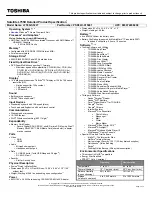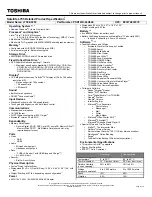
20
2
Knowing the Parts
Left Side
Refer to the diagram below to identify the components on this side of the Notebook PC.
Power (DC) Input
The supplied power adapter converts AC power to DC power for use with this jack. Power supplied
through this jack supplies power to the Notebook PC and charges the internal battery pack. To prevent
damage to the Notebook PC and battery pack, always use the supplied power adapter.
Microphone Input Jack (Mic In)
The mono microphone jack (1/8 inch) can be used to connect an external microphone or output signals
from audio devices. Use this feature for video conferencing, voice narrations, or simple audio record-
ings.
Headphone Output Jack (Phone Out)
The stereo headphone jack (1/8 inch) is used to connect the Notebook PC’s audio out signal to ampli-
fied speakers or headphones. Using this jack automatically disables the built-in speakers.
Audio Input Jack (Audio In)
The stereo input jack (1/8 inch) can be used to connect a stereo audio source to the Notebook PC. This
feature is used mainly to add audio to multimedia applications.
1394 Port
IEEE1394 is a high speed serial bus like SCSI but has simple connections and hot-plugging capabilities
like USB. The interface IEEE1394 has a bandwidth of 100-400 Mbits/sec and can handle up to 63 units
on the same bus. IEEE1394 is also used in high-end digital equipment and should be marked “DV” for
Digital Video port.
PC Card Slot
One PCMCIA 2.1 compliant PC Card socket is available to support one type I/II PC card. The socket
supports 32-bit CardBus. This allows accommodation of Notebook PC expansion options such as memory
cards, ISDN, SCSI, Smart Cards, and wireless network adapters.
Air Vents
1394
Port
PC Card
Slot
DC Power
Input Jack
Mic
Input
Head
Output
Hard Drive
Compartment
(see bottom side)
Audio
Input
PC Card
Eject
















































